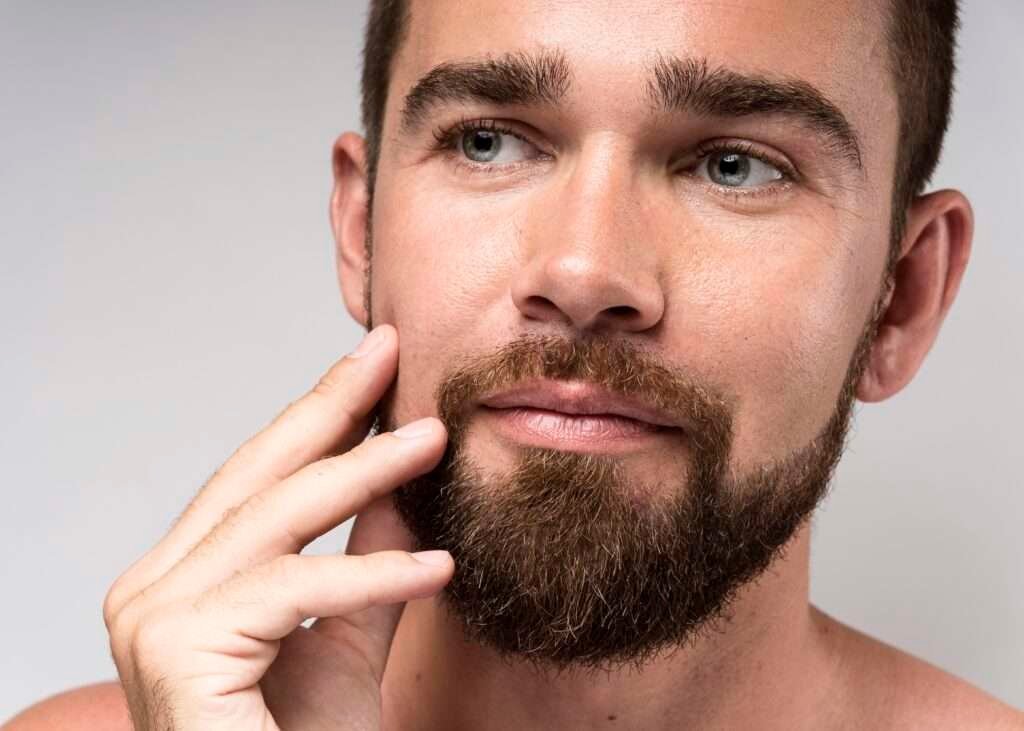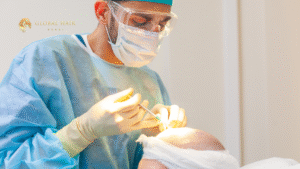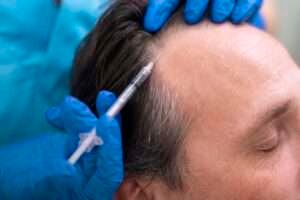The Rise of Facial Hair: Exploring Mustache Hair Transplants in Cultural Contexts

Facial hair has long been intertwined with cultural identity, symbolism, and personal expression across various societies. While trends in grooming and aesthetics evolve, the mustache remains a prominent feature, often associated with masculinity, authority, and style. In recent years, the popularity of mustache hair transplants has surged, reflecting shifting beauty ideals and individual desires for facial hair perfection.
Cultural Significance of the Mustache
The cultural significance of the mustache spans centuries and continents, with each region attributing distinct meanings and symbolism to this facial feature. In many cultures:
- Masculinity and Virility: The mustache is often seen as a symbol of masculinity and virility, signifying maturity and strength in men.
- Authority and Wisdom: In some societies, a well-groomed mustache conveys authority and wisdom, particularly among elder figures and leaders.
- Cultural Traditions: Certain cultures incorporate mustaches into traditional attire or ceremonies, where facial hair styles symbolize lineage, social status, or religious affiliations.
Understanding these cultural nuances is crucial when examining the growing popularity of mustache hair transplants, as individuals seek to align their appearance with cultural ideals or personal aspirations.
Evolution of Facial Hair Trends
Facial hair trends have evolved significantly throughout history, influenced by societal norms, fashion trends, and popular culture. The mustache, in particular, has experienced various phases of popularity:
- Historical Icons: Iconic figures from history often influenced mustache trends, such as the well-known styles of Salvador Dalí, Charlie Chaplin, or Albert Einstein, each contributing to the mustache’s cultural appeal.
- Revivals and Revolutions: Periods of revival, such as the 1970s and 1980s, saw a resurgence of mustache popularity, driven by cultural movements and celebrity endorsements.
Today, social media and digital platforms play a pivotal role in shaping contemporary grooming trends, with influencers and celebrities showcasing diverse mustache styles and prompting renewed interest in facial hair aesthetics.
Mustache Hair Transplants: A Modern Phenomenon
In recent years, advancements in cosmetic surgery have transformed the landscape of facial hair restoration, making mustache hair transplants a viable option for individuals dissatisfied with natural growth patterns or seeking to emulate specific styles. Key factors contributing to the rise of mustache hair transplants include:
- Technological Innovations: Techniques such as Follicular Unit Extraction (FUE) have revolutionized hair transplantation, offering precise extraction and implantation of hair follicles for natural-looking results.
- Customization and Personalization: Patients can now customize their mustache shape, density, and style, ensuring the procedure aligns with their facial features and personal preferences.
- Celebrity Influence: Celebrity endorsements and media portrayal of idealized facial hair aesthetics have heightened public awareness and acceptance of cosmetic procedures like mustache hair transplants.
Social and Psychological Impacts
Beyond aesthetics, mustache hair transplants can have profound social and psychological impacts on individuals:
- Enhanced Self-Perception: Achieving a fuller mustache can boost self-esteem and confidence, particularly for individuals who feel self-conscious about sparse or uneven facial hair growth.
- Social Perception: A well-groomed mustache may influence how individuals are perceived in social and professional settings, potentially enhancing charisma and authority.
- Cultural Identity: For some, maintaining or restoring a mustache aligns with personal or cultural identity, fostering a sense of connection to heritage or community.
Exploring these impacts underscores the broader significance of facial hair in personal identity and societal interactions, highlighting the multifaceted motivations behind choosing mustache hair transplants.
Ethical and Cultural Considerations
The growing popularity of cosmetic procedures like mustache hair transplants also raises ethical and cultural considerations:
- Beauty Standards: Examining how beauty standards influence individuals’ decisions to undergo cosmetic procedures and the broader implications for self-image and societal norms.
- Cultural Appropriation: Discussions on cultural appropriation and respectful engagement with cultural symbols, ensuring procedures like mustache hair transplants are approached thoughtfully and sensitively.
Navigating these discussions encourages a deeper understanding of the intersection between personal choice, cultural identity, and societal expectations in the realm of facial aesthetics.
Regional Variations in Mustache Styles
Across different regions and cultures, mustache styles vary significantly, reflecting unique aesthetic preferences and cultural norms. For example:
- Middle East: Thick and well-defined mustaches are traditionally revered as symbols of masculinity and maturity.
- South Asia: Mustaches are often styled prominently as a cultural tradition, with variations in shape and thickness denoting regional and religious affiliations.
- Western Cultures: Movements like Movember have popularized diverse mustache styles, encouraging men to grow and groom their facial hair to raise awareness for men’s health issues.
Exploring these regional variations provides insights into how cultural contexts influence the perception and grooming practices related to mustaches.
14. Gender and Mustache Hair Transplants
While traditionally associated with male grooming, mustache hair transplants are increasingly sought after by individuals of all genders. For transgender individuals or those exploring non-binary identities, facial hair can play a crucial role in gender affirmation and personal expression. Understanding the diverse motivations and experiences of transgender and non-binary individuals undergoing mustache hair transplants contributes to discussions on inclusive healthcare practices and identity affirmation.
15. Historical Influences on Modern Grooming Trends
Historical figures and cultural movements have left enduring legacies on modern grooming trends, including mustache styles. The resurgence of classic styles like the handlebar or pencil mustache among younger generations highlights how historical references continue to shape contemporary fashion and personal grooming choices. Examining these influences provides a deeper appreciation for the cultural continuity and evolving interpretations of facial hair aesthetics over time.
16. Psychological Considerations in Facial Hair Grooming
Facial hair grooming, including mustache hair transplants, can have profound psychological impacts on individuals. Research indicates that grooming routines can influence self-perception, confidence levels, and interpersonal interactions. For some, achieving a desired mustache style through transplantation may alleviate feelings of self-consciousness or enhance perceived attractiveness, positively impacting overall well-being and quality of life.
17. Media Representation and Mustache Hair Transplants
Media platforms, including film, television, and social media, often portray idealized versions of facial hair aesthetics, influencing public perceptions and grooming trends. Celebrities and influencers who showcase well-groomed mustaches contribute to the normalization and popularity of mustache hair transplants, shaping societal attitudes towards facial hair enhancement procedures. Analyzing media representations offers insights into how popular culture shapes beauty ideals and consumer preferences in cosmetic procedures.
18. Educational Initiatives and Awareness
Educational initiatives play a crucial role in fostering awareness about mustache hair transplants, addressing misconceptions, and promoting informed decision-making among potential candidates. Healthcare providers and advocacy organizations can collaborate to provide accurate information, resources, and support networks for individuals considering facial hair restoration options. By empowering individuals with knowledge, these initiatives promote health literacy and facilitate access to safe and effective cosmetic procedures.
19. Future Trends and Innovations in Facial Hair Restoration
The field of facial hair restoration continues to evolve with ongoing advancements in technology and techniques. Future trends may include innovations in regenerative medicine, such as stem cell therapies or bioengineering approaches, to enhance natural hair growth and improve transplantation outcomes. Monitoring these developments offers insights into the potential for personalized and sustainable solutions in facial aesthetics, catering to diverse patient needs and preferences.
20. Social Implications of Mustache Hair Transplants
Beyond individual motivations, mustache hair transplants can have broader social implications, influencing perceptions of masculinity, attractiveness, and professional success. Research on societal attitudes towards facial hair and cosmetic procedures reveals shifting norms and acceptance levels, shaping cultural narratives around beauty standards and personal expression. Understanding these social dynamics contributes to discussions on identity, diversity, and inclusivity within the realm of aesthetic enhancement.
Conclusion: Embracing Diversity in Facial Hair
In conclusion, the rise of mustache hair transplants reflects an evolving landscape of facial aesthetics, where individuals seek to enhance their appearance in alignment with personal preferences and cultural influences. From historical symbolism to contemporary trends, the mustache continues to play a pivotal role in shaping identities and fostering confidence. By exploring the cultural contexts, technological advancements, and personal narratives surrounding mustache hair transplants, we gain a deeper appreciation for the diverse motivations and impacts of this transformative procedure. Whether embracing tradition, exploring new trends, or reclaiming personal confidence, the journey towards a fuller, more defined mustache underscores the multifaceted nature of facial hair in defining individuality and cultural expression.

Why Global Hair Dubai Is the.
Why Global Hair Dubai Is the Top Hair Transplant Clinic in the UAE Choosing the right hair transplant clinic in.
Read More
Best Hair Transplant in Dubai for.
Hair loss can impact men at any age, leading to reduced self-esteem and confidence. Fortunately, modern hair transplant techniques offer.
Read More
